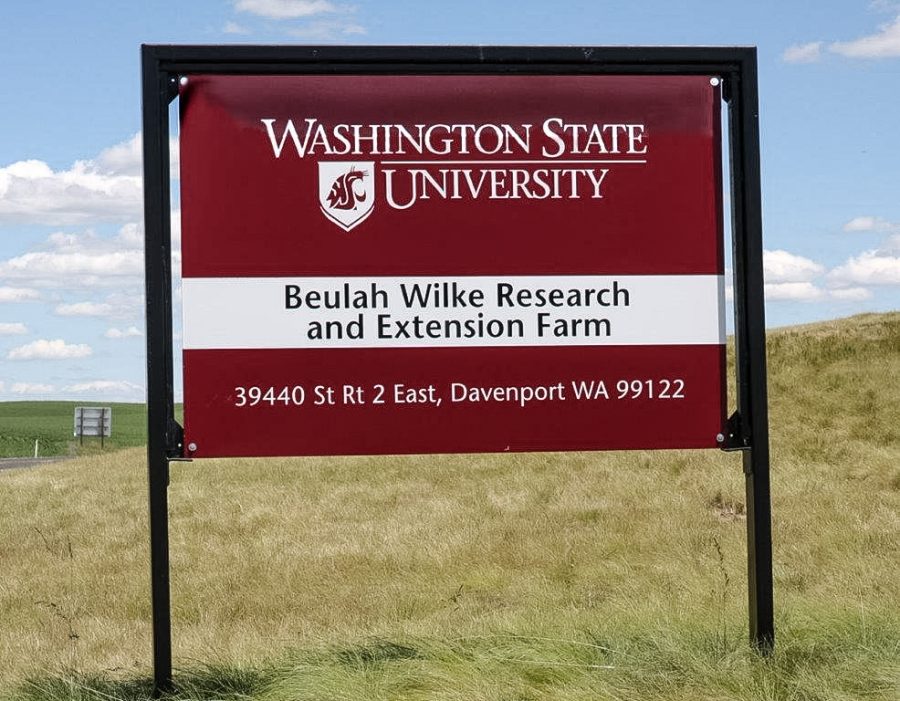Wilke Farm: Home to studies, researchers
Location makes perfect spot for testing that requires intermediate rainfall for crops, pests like wireworms
The WSU Wilke Research and Extension Farm located in Davenport, Wash.
September 16, 2021
Located in Washington’s intermediate rain zone in Davenport, the WSU Wilke Research and Extension Farm has been conducting research on cropping systems that improve farm profitability and enhance soil quality.
The main purpose of the Wilke farm is to provide research that is beneficial to growers in the intermediate rainfall zone that will help them analyze their farming practices and make better farming decisions, said Aaron Esser, Regional Extension Specialist and WSU Wilke Farm management committee chair.
One focus of research is weed control and wireworm prevention, Esser said. Wireworms are pests found in soil. The farm has found ways to mitigate the wireworms and is working with chemical companies to develop pesticides for wireworm control.
Another focus of research includes overall crop management and economics. Every year, the farm publishes a financial report to help guide farmers, he said.
The farm also hosts breeding and fertilizer trials. The research helps breeders select different crop rotations, lines of wheat and other various crops that are best suited for the region.
Isaac Madsen, WSU extension agronomist for oilseeds, said his research at the farm studies flowering dates of canola, yield rates of different canola varieties and getting canola to better survive winter. He also studies pea-canola intercropping, which is a different way of farming canola.
“For me, the highlight has really been the research projects we have been able to get done,” Madsen said. “We really wouldn’t be able to do those research projects without the infrastructure of the farm right there.”
Besides doing research on growing crops in an intermediate rainfall zone, the farm also does a lot of farmer outreach. The farm hosts annual field days where growers can see the research, hear about what is going on at the farm and exchange ideas, Madsen said.
But field day this year was canceled because of 115-degree day temperatures. The year before that, field days were canceled because of the pandemic. The farm hosted virtual field days, but that is not the same as in-person interaction, Esser said.
Yields at the farm are down significantly because of drought and cold conditions, Madsen said. Normally the farm is wet and cold or dry and hot, but the unusual conditions caused the crops to suffer.
This was the first time the farm will get a collection from crop insurance because of the farm’s low crop yields. Despite the low yields, Esser said the farm’s current conditions are not that bad considering the circumstances.
“Given the fact that conditions that we had with the record heat — we really haven’t had measurable precipitation since February [or] March,” Esser said. “The crops weren’t that bad.”
Research in hard times is more critical than research in favorable times because it allows farmers to learn how to survive hard years and minimize negative impacts, he said. The farm’s research will allow farmers to plan for future bad years.
Besides providing outreach to farmers and informing them on the best growing practices, the farm also provides information to the university on what growers really need, Esser said. It is hard to know from Pullman, which is 80 miles from Davenport, what is relevant to farmers in intermediate rainfall zones.
“I look at our job it’s just as important to inform WSU as it is to inform growers on what WSU is doing,” he said










